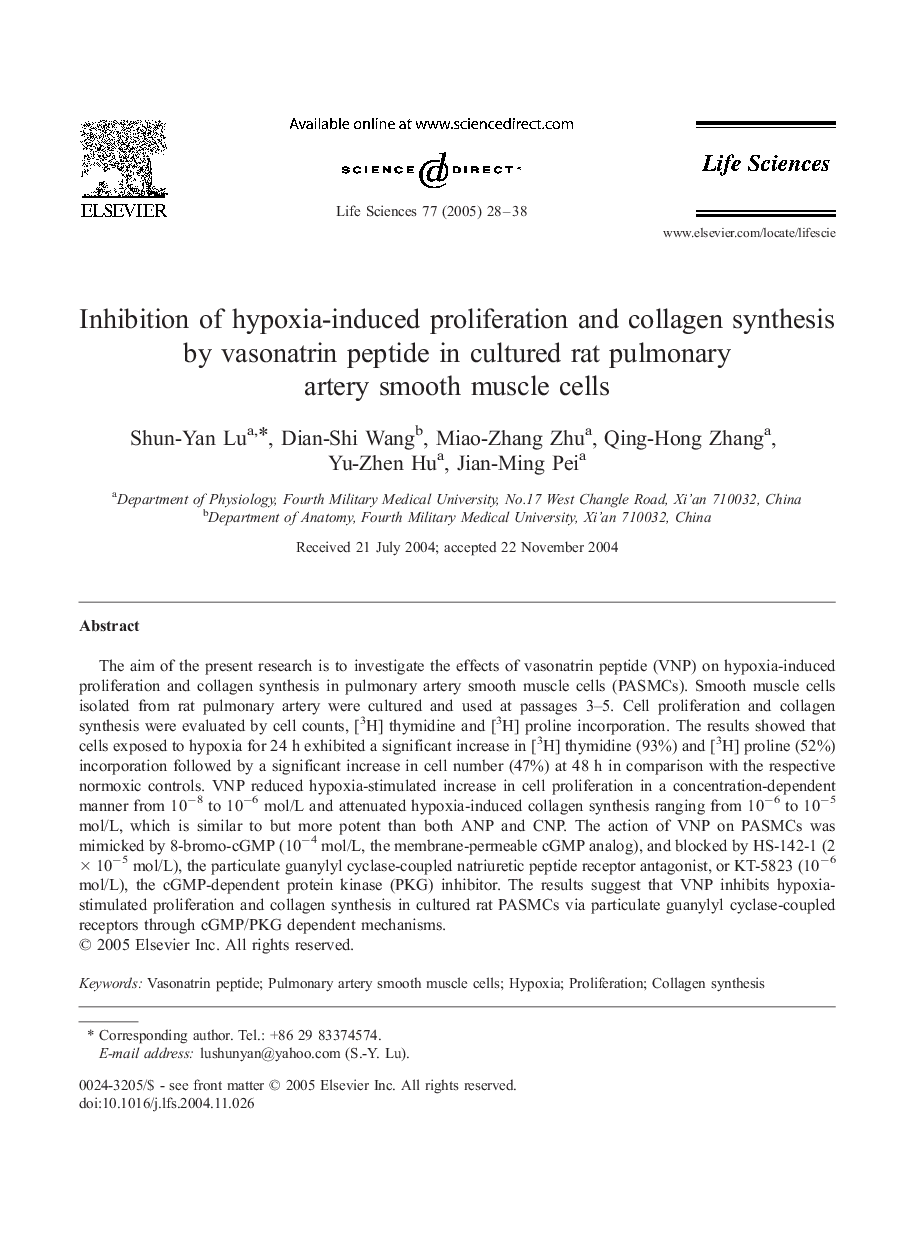| Article ID | Journal | Published Year | Pages | File Type |
|---|---|---|---|---|
| 9012906 | Life Sciences | 2005 | 11 Pages |
Abstract
The aim of the present research is to investigate the effects of vasonatrin peptide (VNP) on hypoxia-induced proliferation and collagen synthesis in pulmonary artery smooth muscle cells (PASMCs). Smooth muscle cells isolated from rat pulmonary artery were cultured and used at passages 3-5. Cell proliferation and collagen synthesis were evaluated by cell counts, [3H] thymidine and [3H] proline incorporation. The results showed that cells exposed to hypoxia for 24 h exhibited a significant increase in [3H] thymidine (93%) and [3H] proline (52%) incorporation followed by a significant increase in cell number (47%) at 48 h in comparison with the respective normoxic controls. VNP reduced hypoxia-stimulated increase in cell proliferation in a concentration-dependent manner from 10â8 to 10â6 mol/L and attenuated hypoxia-induced collagen synthesis ranging from 10â6 to 10â5 mol/L, which is similar to but more potent than both ANP and CNP. The action of VNP on PASMCs was mimicked by 8-bromo-cGMP (10â4 mol/L, the membrane-permeable cGMP analog), and blocked by HS-142-1 (2 Ã 10â5 mol/L), the particulate guanylyl cyclase-coupled natriuretic peptide receptor antagonist, or KT-5823 (10â6 mol/L), the cGMP-dependent protein kinase (PKG) inhibitor. The results suggest that VNP inhibits hypoxia-stimulated proliferation and collagen synthesis in cultured rat PASMCs via particulate guanylyl cyclase-coupled receptors through cGMP/PKG dependent mechanisms.
Related Topics
Health Sciences
Medicine and Dentistry
Cardiology and Cardiovascular Medicine
Authors
Shun-Yan Lu, Dian-Shi Wang, Miao-Zhang Zhu, Qing-Hong Zhang, Yu-Zhen Hu, Jian-Ming Pei,
